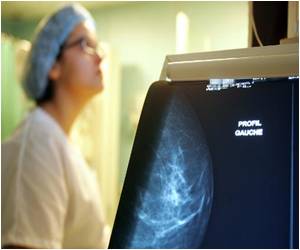The suppression of two genes reduce breast cancer tumor formation and metastasis by interfering with blood vessel formation and recruitment.

The genes, MLF2 (myeloid leukemia factor 2) and RPL39 (a ribosomal protein), were found to most profoundly impact the production of nitric oxide synthase, which helps regulate blood vessel behavior and could be crucial to the recruitment of new blood vessels to growing tumors. These genes impact the spread of TNBC throughout the body, and have not so far been linked with breast cancer.
"We have found two unique genes that may affect the most lethal type of breast cancer" said principal investigator and Houston Methodist Cancer Center Director Jenny Chang, M.D., "Most importantly, by knowing how these genes function, we have drugs that can block nitric oxide signaling and will begin a clinical trial in the Cancer Center in the near future"
About 42,000 new cases of triple negative breast cancer (TNBC) are diagnosed in the United States each year, about 20 percent of all breast cancer diagnoses. Patients typically relapse within one to three years of being treated. TNBC is distinguished from other breast cancers in that it does not express the genes for estrogen receptor, progesterone receptor, and Her2/neu and is frequently harder to treat.
By suppressing close to five hundred TNBC-related genes, Chang's group found interference was strongest with MLF2 and RPL39 in triple negative breast cancer model tissue. The scientists also learned that mutations in these genes in human patients were associated with worse survival in (human) triple negative breast cancer patients.
The researchers went a step further, determining which configurations of small inhibitory RNA (siRNA) were most efficient at shutting down MLF2 and RPL39 in breast cancer stem cell lines. siRNA molecules interfere with the cell's ability to express genes and have proven to be effective drug tools for a wide variety of diseases, including some cancers.
Advertisement
Earlier this year, Chang, Weill Cornell Medical College Dean Laurie Glimcher, M.D., and colleagues reported to Nature another possible drug target for TNBC patients called XBP1, another gene previously unassociated with breast cancer.
Advertisement
Source-Eurekalert















